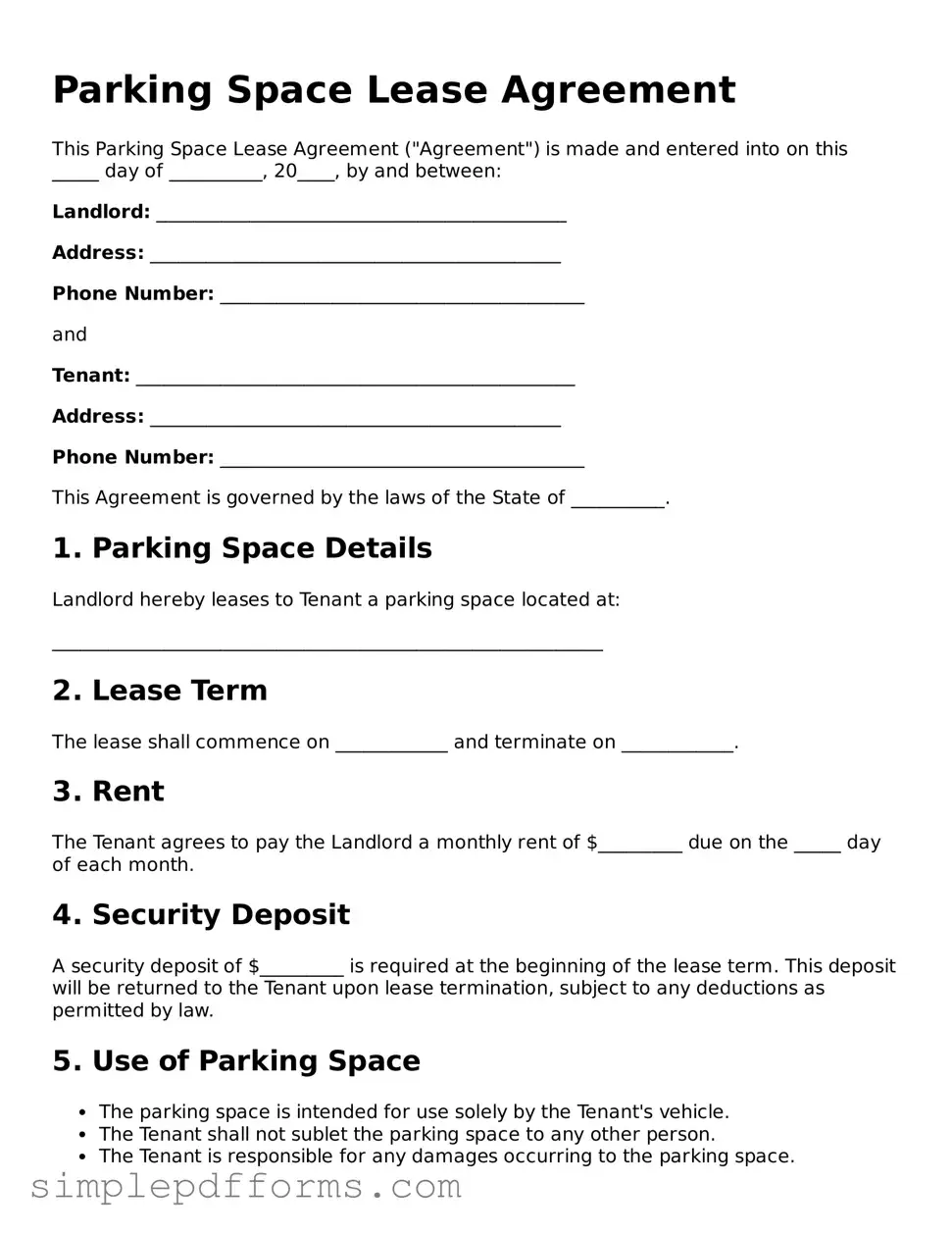Free Parking Space Lease Agreement Form
A Parking Space Lease Agreement is a legal document that outlines the terms and conditions under which one party rents a parking space from another. This agreement typically includes details such as the duration of the lease, rental fees, and responsibilities of both the landlord and tenant. Understanding this form is essential for both parties to ensure a smooth leasing experience and to protect their rights.
Open Parking Space Lease Agreement Editor Now

Free Parking Space Lease Agreement Form
Open Parking Space Lease Agreement Editor Now

Open Parking Space Lease Agreement Editor Now
or
Get Parking Space Lease Agreement PDF Form
Your form is waiting for completion
Complete Parking Space Lease Agreement online in minutes with ease.